Atteindre des performances de pointe exige une préparation physique et mentale adaptée, mais la peau – une partie importante du corps – nécessite également des soins spécifiques. Quels sont les facteurs les plus critiques susceptibles d'endommager la peau dans le sport de haut niveau ?
Les athlètes de haut niveau s'entraînent intensément, ce qui les fait transpirer abondamment. De nombreux micro-organismes se développent dans une atmosphère humide ; plus on transpire, plus le risque de développer une infection cutanée est élevé. Les athlètes se douchent également plusieurs fois par jour. À chaque douche, ils éliminent non seulement les impuretés, mais aussi les bonnes bactéries et les lipides cutanés. Il en résulte une peau sèche, irritée et sujette aux démangeaisons. Cette peau sèche facilite également la pénétration de substances externes et offre une protection moindre contre les frottements. La peau est donc déjà fragilisée par les lavages réguliers et fréquents. Il est crucial de disposer d'une bonne barrière contre les agressions extérieures, en particulier pour les athlètes dont la barrière cutanée est déjà plus endommagée.
Comment un sportif peut-il préparer/renforcer sa peau ?
Lorsque les athlètes évoluent dans un climat différent, il est important qu'ils prennent le temps de s'adapter. Le corps peut alors s'acclimater, ce qui réduit la transpiration. Une autre possibilité consiste à utiliser des produits anti-transpirants, mais ceux-ci ne peuvent être appliqués efficacement que sur les aisselles et les pieds, car la transpiration fait partie du processus de régulation de la température corporelle.
Il est également important d'utiliser des produits doux pour nettoyer la peau et de toujours appliquer un soin nourrissant et protecteur pour la régénérer par la suite. Cela neutralise les éventuelles irritations et maintient une barrière cutanée saine. Cette routine est importante, pas seulement pendant les périodes de performance maximale. Un athlète doit commencer en amont pour éviter toute carence. Un bon soin de la peau est important tout au long de l'année et peut être intensifié pendant les périodes de performance maximale. Les cellules de la peau se reconstruisent constamment – par un processus de division cellulaire – et sont donc constamment en action. C'est un processus très dynamique qui doit se dérouler de manière fluide et optimale. La réparation des dommages prend beaucoup de temps.
Un physiothérapeute peut-il contribuer au maintien d’une peau saine ?
Certainement. En utilisant le moins de produits irritants possible pour préserver la peau et en évitant autant que possible les allergènes connus. L'essentiel est d'éviter d'irriter la peau et, si c'est déjà le cas, de ne pas l'aggraver davantage.
Quels sont les résultats possibles d’un mauvais soin de la peau pour un athlète ?
Il faut absolument éviter les soins de la peau inappropriés. L'athlète ne tombera pas malade, mais une peau irritée et qui démange peut l'empêcher de dormir, ce qui entraîne fatigue, stress et irritation, ce qui est pénible pour l'athlète et peut impacter ses performances. Les frottements peuvent provoquer des ampoules ou des callosités, ce qui peut détourner l'attention de l'athlète de sa performance, voire l'influencer directement. Cela peut faire une grande différence pour les athlètes de haut niveau.
Lors des Jeux olympiques de Rio, la pathologiste Paula Saldiva a déclaré que la pollution de l'air tuait plus de personnes que la pollution de l'eau. Quel est l'effet de la pollution de l'air sur la peau ?
La pollution atmosphérique provoque des dommages similaires à ceux du tabac et des rayons UV. Elle libère des radicaux libres qui aggravent le processus d'oxydation. Cela accélère le vieillissement cutané et certains polluants peuvent même provoquer le cancer. Il est donc essentiel de bien nettoyer sa peau.
Les gaz d'échappement et la climatisation peuvent obstruer les pores et favoriser l'acné. La même règle s'applique : une bonne hydratation crée une barrière cutanée solide, offrant une meilleure protection à la peau. Les influences négatives auront moins d'impact sur la peau. Les effets néfastes de la pollution atmosphérique peuvent être atténués par les antioxydants, les vitamines et les minéraux. Une alimentation saine est un excellent point de départ. L'application de produits de soins riches en antioxydants permet de neutraliser et de réduire les effets négatifs de la pollution atmosphérique.

